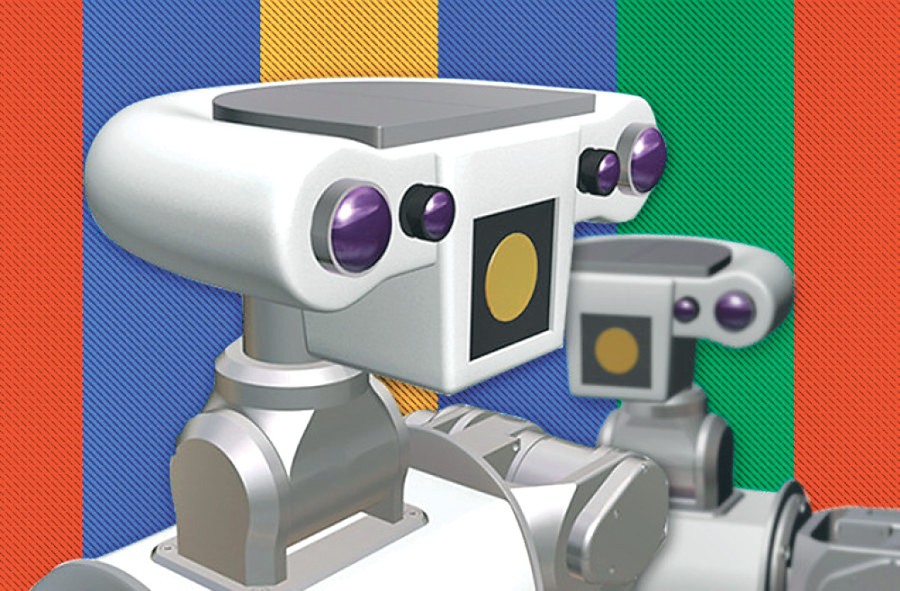Opinion
Rise of the machines
Simple robots are becoming a common part of our life, but pundits fear the ‘Robot Age’ will invite mass technological unemployment
Bimal Pratap Shah
The other day, I received a text message that read something like this: “Is Angelina Jolie a Cyborg?” A cyborg is a fictional being with physical abilities stretched beyond normal human limitations by mechanical components built into the body. Since, I knew nothing about her being a cyborg, I quickly texted back saying, “no.” But the strange question got me thinking about cyborgs in general.
The message reminded me of the Oscar-winning actress’s new gig at the London School of Economics and Political Science (LSE). Jolie will be joining the school as a visiting professor to teach a new master’s course run by the Centre for Women, Peace, and Security. However, the movie of hers, which is becoming ever more relevant as we enter the ‘new digital age’ is the 1993 movie titled ‘Cyborg 2.’
The movie is set in the year 2074 and the cybernetics market is dominated by two rival companies: Pinwheel Robotrics from the US and Kobayashi Electronics from Japan. Angelina Jolie happens to be a prototype suicide bomber cyborg developed by the American firm to be used for corporate espionage. So, her main job is to suicide bomb the entire Board of Directors of Kobayashi Electronics to allow the American firm monopoly over the cyborg market. In short, the movie portrays post-internet techno society in an interesting manner.
The concept of a cyborg, however, was somewhat far-fetched when the movie came out in the 90s. Still, we are a long way from that sort of quasi-utopian future from science fiction universes, but simple robots are becoming a common part of our life. The International Federation of Robotics estimates over 400 robots will serve as guides in supermarkets, stores, or museums by 2017.
A recent survey among executives from the Fortune 500 companies show that they welcome this shift. A majority of them believe robots will rescue humans from manual labor and also help make their respective organisations leaner, profitable, consistent, and competitive. According to Professor Moshe Vardi of Rice University, Texas, robots will take over most human jobs within 30 years. Similarly, Boston Consulting Group says that up to a quarter of jobs will be replaced by either smart software or robots by the year 2025.
On the contrary, some argue there is also a darker side to it. Pundits fear the ‘Robot Age’ will invite mass technological unemployment, replacing office workers engaged in repetitive jobs. It looks like even construction oriented jobs are not safe from this technological progress. Mark Pivac, an Australian aeronautic and mechanical engineer has developed a robot that can lay 1,000 bricks an hour. It can calculate the location of each brick and securely place them with mortar using a 28-foot long arm. Furthermore, it can supposedly work for 24 hours and complete a house every two days. Nepal could really make use of such robots, because the reconstruction efforts in the earthquake affected areas is moving at a snail’s pace, if at all. And there is no telling how long that situation may last.
Imagine this: Androids in Parliament. I think people would welcome the experiment, because Nepal’s polarised, dysfunctional, and corrupt political culture has denied the country any prosperity. Politicians are only preoccupied with politicking when they should actually be focusing their efforts on nation building. I wonder if Silicon Valley can do us a favour and develop Android politicians so that we can replace the ones who are morally bankrupt.
I suppose people will have opposing views regarding Androids parliamentarians. It is highly likely that advocates of deliberative democracy who consider democracy to be allowing citizens to vote once in every four years will probably discard this radical concept. On the contrary, advocates of the free market who are more interested in a lean government, good governance, and electronic government will probably endorse the experiment. As for me, I can already see one benefit. It will be easier to program ethical and moral values into robots. In reality, however, the Androids are not likely to replace politicians anytime soon.
The government recently presented the budget for the fiscal year 2016-2017. I was happy to learn that the government has allocated funds for apple processing centres to be built in Jumla and Mustang. However, I was somewhat disappointed to learn that the budget did not outline any concrete plans to encourage the Silicon Valley giants like Apple to set up offices in Nepal.
So, for now, it seems the Silicon Valley thing will not get any traction this year either. As for the bizarre text about Angelina Jolie, the sender told me that he was influenced by the movie ‘Ex Machina’. If so, the question should have been, “Is Alicia Vikander a cyborg?” And, to that, my reply would have been “Android”.
Shah is the co-author of ‘Strategic IT Planning for Public Organisations: A Toolkit’ published by the UN in 2009




 17.9°C Kathmandu
17.9°C Kathmandu











